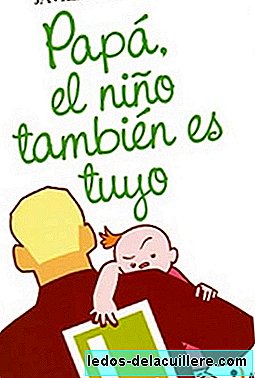
The Royal Decree that has just been published in the BOE modifies the subject of Education for Citizenship of the 2012 school year and later. It is a modification of the Law published in 2006. I am going to refer specifically to Primary Education although the modification for Secondary Education is also mentioned in the BOE.
And is that in the Primary education, says the BOE, children are in a position to start active democratic participation in the educational center and in their community and to address the explicit study of the Spanish Constitution and Human Rights and its universal character. At this age they are also able to reflect on their belonging to a nation, a region, a municipality and a neighborhood, while being part of a global society.
The BOE continues to say that methodological approaches must, therefore, promote the desire to know, knowledge of legal norms and coexistence regulations of schools, the proper functioning of constitutional political institutions, the need for ethics in the direction of public affairs and the spirit of self-improvement and improvement of society.
The subject consists of three blocks which include:
Block 1. The individual and interpersonal and social relationships.
- Autonomy, will, self-esteem and responsibility.
- Human dignity Human rights and child rights. Relationships between rights and duties. The universality of Human Rights.
- Non-discrimination based on birth, race, sex, religion, opinion or any other personal or social condition or circumstance.
- The equal rights of men and women in all areas and especially in the family and in the labor and social world, promoting the co-responsibility of women and men. Learn to share housework and family care.
- Recognition of others as the basis of coexistence. Friendship.
- Healthy lifestyle habits related mainly to food, physical and sports activity.
Block 2. The life in community.
- Civic values in democratic society.
- The coexistence in the family, the school, the neighborhood and the town.
- The right and duty to participate. The different channels of participation.
- Pluralism in democratic society. Identification of situations of marginalization, inequality, discrimination and social injustice.
- Importance of private initiative in economic and social life.
Block 3. Live in society
- The social coexistence. Need for the rules to live together. The principles of coexistence in the Spanish Constitution.
- Rights and duties in the Constitution.
- Public services and common goods. The contribution of citizens through taxes.
- Civic habits: Public spaces and the environment. Civil protection and citizen collaboration in the face of disasters. The integral security of the citizen.
- Respect for road mobility regulations. Identification of causes and risk groups in traffic accidents (pedestrians, travelers, cyclists, etc.).
Reviewing many news and articles on the modification I found this article by Jesús Encinar, the head of Idealista, in which he identified the good and the bad of the subject of Education for Citizenship (has comments closed). In it Jesus complained that, and I copy: "the section dedicated to explaining the aspects of economics, globalization and competitiveness. The text cannot be more false and liar, assuming as prejudice truths without base on the real data and expressing a point unionist, anti-globalization and anti-company view It seems like a joke for how uninformed it is It is worrisome to think that a generation of kids can be indoctrinated from school in ideas that ooze aversion to private initiative, companies, savers and investment . "
So I think we have to congratulate ourselves because this block has been included in primary education:
Importance of private initiative in economic and social life.
Y especially in high school further developing the idea in the following points:
- The economic dimension of human society. Political freedom and economic freedom. The role of private economic initiative in the generation of wealth and the promotion of entrepreneurship. NGOs and Civil Society.
- Rational and responsible consumption. Recognition of the rights and duties of consumers
Although much remains to be done and a change in the form of action that has led autonomous communities to have more than 50% youth unemployment is urgent, I have no doubt that this reform, being necessary, has already been marked as a reform politics.


![The Ministry of Health proposes to include the varicella vaccine in the common calendar [Updated]](https://img.ledos-delacuillere.com/img/bebesy2-2019/el-ministerio-de-sanidad-propone-incluir-la-vacuna-de-la-varicela-en-el-calendario-com-n.jpg)









